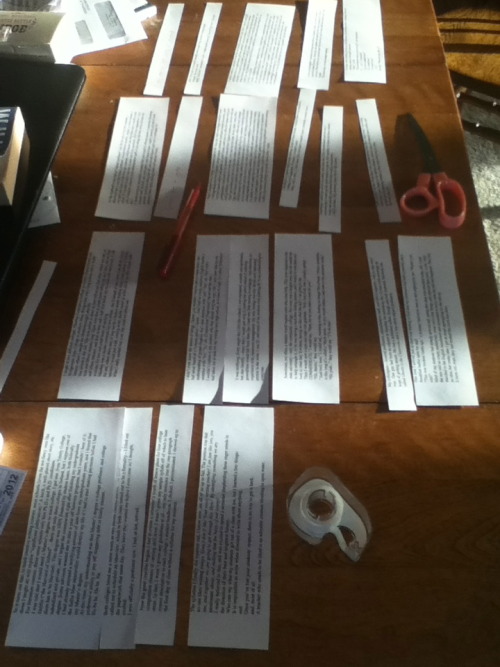Chuck Wendig on finding your characters
 Thursday, February 7, 2013 at 4:00AM in
Thursday, February 7, 2013 at 4:00AM in  Inspiration,
Inspiration,  Process
Process Yet another great post from author Chuck Wendig, this time about how he gets started on a new book:
...I suss out the characters wants, needs, and fears. What does the character need to keep going? What does the character want — whether consciously or unconsciously? What will drive him as a goal throughout this story? And finally, what does he fear? Obstacles in a character’s path are critical, and some of those obstacles must be bound up with the character’s fears.
Finally, I do a little three-beat character arc for the character. Three words or sentences that are meant to indicate the state of the character across the story — beginning, middle, and end.
Poor cat down on his luck wants to see a change in this country –> elected president, way over his kitty head –> once again a poor cat but now knows the intimate details of the democratic process and oh did I mention he nuked the middle of our own country into oblivion.
The three beats could be fairly succinct — consider the simple mythic arc of Maiden –> Mother — > Crone. Or, as per the vampire in Double Dead, Predator –> Protector –> Penitent. When conceiving of Miriam Black’s arc in Mockingbird my only three notes were: Selfish Vulture –> Pecking Crow –> Reluctant Raptor.
Read the whole thing here!
There's some really useful/inspiring stuff in this post; I'm planning to give it another read soon and adjust my own process (questionable, at best) to include some of his methods. I'm particularly intrigued by his four-act structure and making a list of "tentpole" and "holy shit!" moments that absolutely must happen in your story.

